“Made in India” and Smart Cities:
Advantech’s Deep Involvement in India
Esther Tseng / photos Kent Chuang / tr. by Phil Newell
December 2024

Advantech, located in a high-tech industrial park in Linkou, New Taipei City, introduced smart energy saving and industrial IoT systems developed in-house, highlighting the company’s status as the world leader in manufacturing industrial personal computers (IPCs).
The Advantech Company is one of Taiwan’s hidden champions. It ranks first by global market share in industrial personal computers (IPCs), it has been deeply involved in the Indian market over the last 25 years, and its “embedded PCs” are to be found everywhere, from airports and mass transit systems to chain restaurants and big box stores. The firm’s Indian subsidiary not only saw explosive growth in its revenues during the Covid-19 pandemic, but thanks to the opportunities created by India’s development of “smart cities,” this growth trend can be expected to continue for another ten to 20 years.
In India’s third-largest city, Bengaluru (Bangalore), known as India’s Silicon Valley, there are major civil engineering projects going on everywhere, and the skyline is filled with building cranes. However, the city is still in the middle of its “dark ages” of traffic congestion due to the ongoing construction of its metro system, as the incessant blaring of car horns on the streets testifies.
We get up very early to come to Advantech India, which has its own campus far removed from the noisy bustle of the main roads. There we are met by CEO and finance head Rakesh Sharma and director Vijay Kumar, who welcome us with a carefully prepared briefing and a bouquet of flowers.

Advantech’s transportation computer systems are designed to take account of actual conditions on Indian roads.
Time proves everything
Vijay Kumar, who is highly respected by his colleagues at Advantech’s Taiwan headquarters, has been continually working to develop the firm’s role in the Indian market since Advantech set up a branch office in India in 2005. Today, between 70 and 80% of all of India’s rail traffic monitoring and control systems, smart power grids, automated equipment in large factories, and even digital management systems for chain restaurants, use Advantech products.
Kumar says that although he already knew 25 years ago that Advantech had an excellent reputation for the quality of its IPCs, the brand was still not widely known in India, so the question became: How could it build market share? “Time proves everything,” says Kumar succinctly. After using Advantech equipment for a period of time, companies found that their computers were durable and needed very little maintenance. This is how the firm established its competitive advantage.
Vijay Kumar stresses: “It was especially important that the products came from Taiwan.” Their coming not from China, but from Taiwan, has been synonymous with high quality in the minds of consumers. The firm imports a variety of parts from Taiwan, which are assembled by Indian engineers and sold nationwide with a “Made in India” label. “This success has been thanks to the support of the headquarters in Taiwan,” states Kumar.
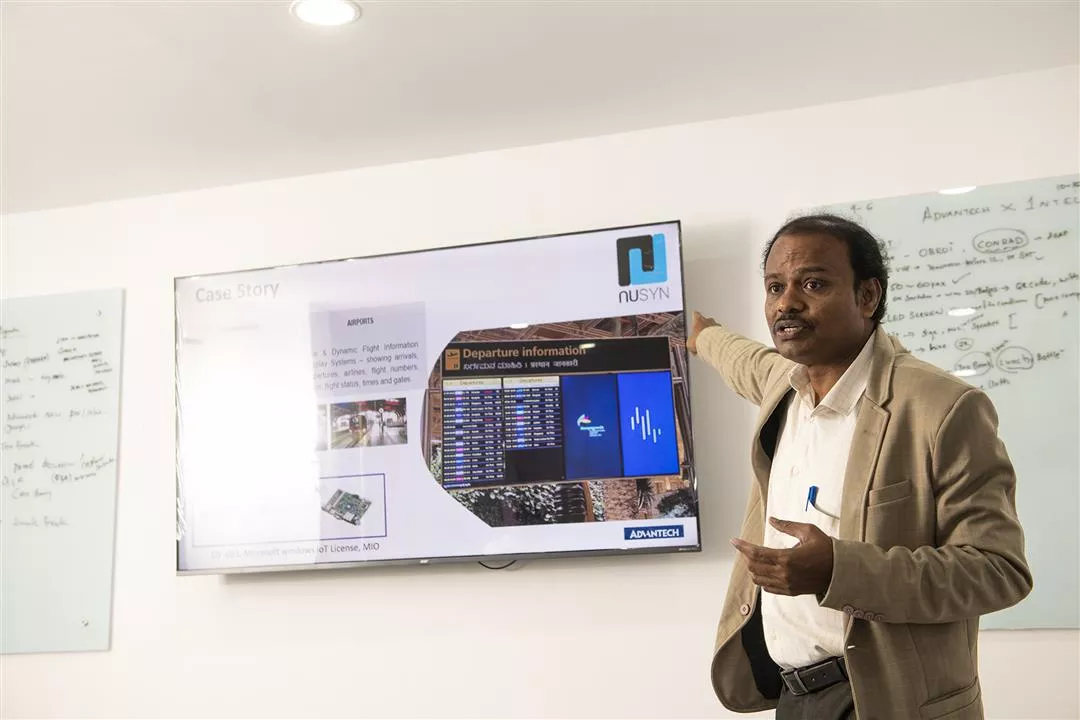
Vijay Kumar, who has visited Taiwan countless times, says that in his eyes Taiwan is a well-ordered country whose citizens have a strong work ethic.
A hidden champion from Taiwan
In a different corner of the planet, at Advantech’s Taiwan headquarters located in Taoyuan City’s Guishan District, Mark Yang, the company’s associate vice president of embedded IoT, notes that Advantech and India have been friends for more than 20 years, and during this time India has changed hugely.
“India is making progress with each passing year. Because it is a democratic country, unlike in an authoritarian country one must always engage in a great deal of communication, debate, and argument to get things done. When you also consider the country’s rich diversity of languages and religions, if you want to address the needs of every individual, then like Advantech’s products, your approach must be ‘low volume but highly diverse,’” Yang relates.
Yang’s tone of voice turns serious as he observes that Indians have a strong sense of ethnic dignity and pride. They relied on precise mathematical calculations to send a spacecraft to the moon, and moreover it was flown to the moon’s south pole, making India the first country on earth to send a space mission there. The computers used in India’s space centers are not made in China, but are all produced by Taiwanese companies, including industrial controllers made by Advantech.
Yang suggests that with India’s vast population of 1.4 billion people eager to enter the digital age and join the middle class, there is immense energy for progress. Advantech, with its IPCs and embedded PCs, is well positioned to participate in the process of India’s modernization.
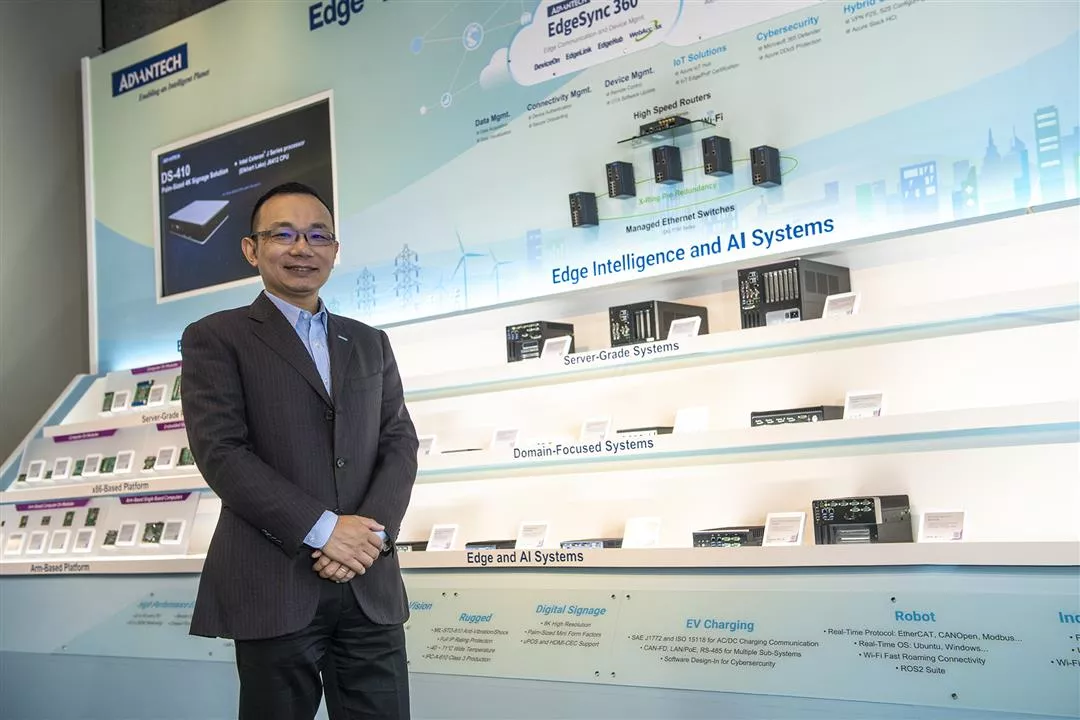
Mark Yang relates that Advantech’s Indian subsidiary has moved to the forefront of fields including smart healthcare, retail sales, and smart manufacturing, and there is still potential for further growth.
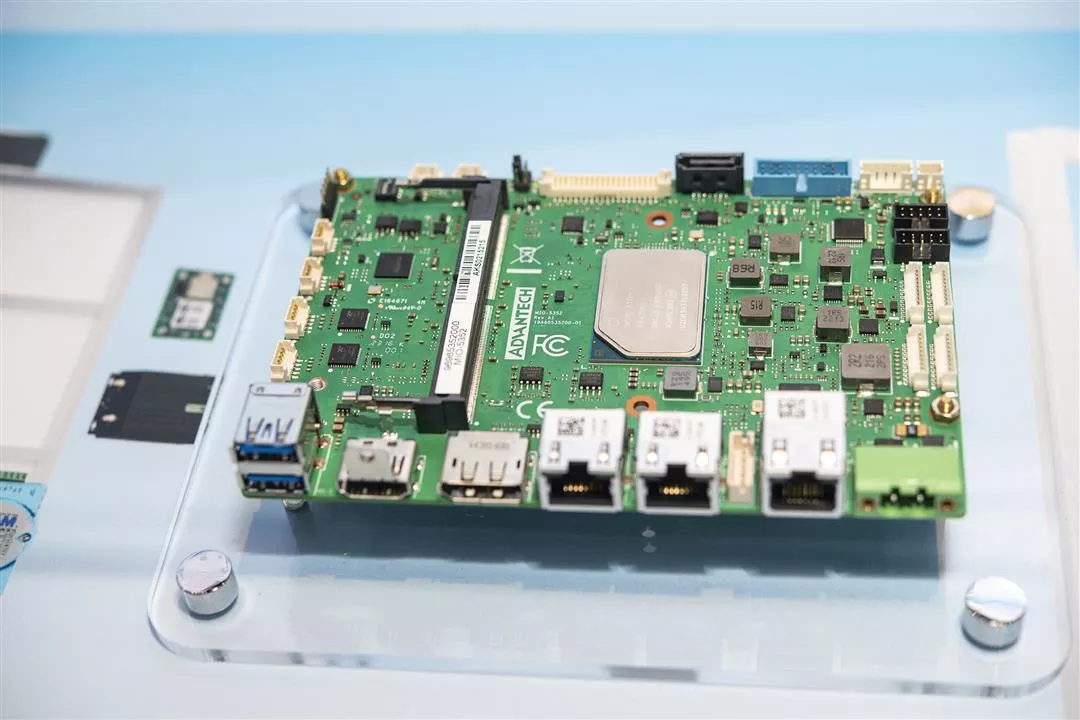
Advantech’s IPCs and their operating systems are designed for 24/7 operations and easy maintenance.
The opportunities of smart cities
Rakesh Sharma, CEO of Advantech India, agrees. In 2014 Prime Minister Narendra Modi adopted a policy position of strengthening India’s basic infrastructure, and in 2015 the “Smart Cities Mission” policy was launched. This policy involves government budget allocations to construct 100 smart cities across the country and comprehensively improve basic infrastructure, including water supply, electric power, and transportation. This is precisely the kind of work for which Advantech is suited.
There is an expression “strengths linking up with strengths.” Yang notes that many Taiwanese firms having a leading position in the world, whether it be the so-called “five brothers” (five major contract manufacturers of personal computers) or a company like Advantech that has continually refined IPCs. Perhaps 90% of Taiwan’s most outstanding science and engineering students go into hardware and semiconductors after graduation, while in India some 90% of such students go into software. There is thus a high level of complementarity between the human resources of the two nations.
Yang then mentions an application for identifying the license plates of cars on the highway made using software designed by the company’s Indian colleagues. Because many car drivers in India weave in and out of traffic like motorcyclists, although there are only three lanes marked on the highways, there are in fact six lines of vehicles. Accordingly, algorithms for analyzing surveillance images must be tailored to the actual situation on the ground. One must also consider that the air quality in India is not so good, and the air is hot and humid, so one must take account of the refraction of outdoor light. With all this in mind, it is only thanks to this software that Advantech has been able to provide services that meet the needs of frontline traffic control.
Moreover, the rugged computers and “edge computing” systems developed by Advantech are well suited to the needs of the Indian market, with its frequent power outages. IPCs have always been designed with mission critical applications in mind, to be resistant to water ingress, airborne sand and dust, and vibrations. Given that India is a software powerhouse, it can assist in providing solutions applicable to all kinds of industries worldwide.
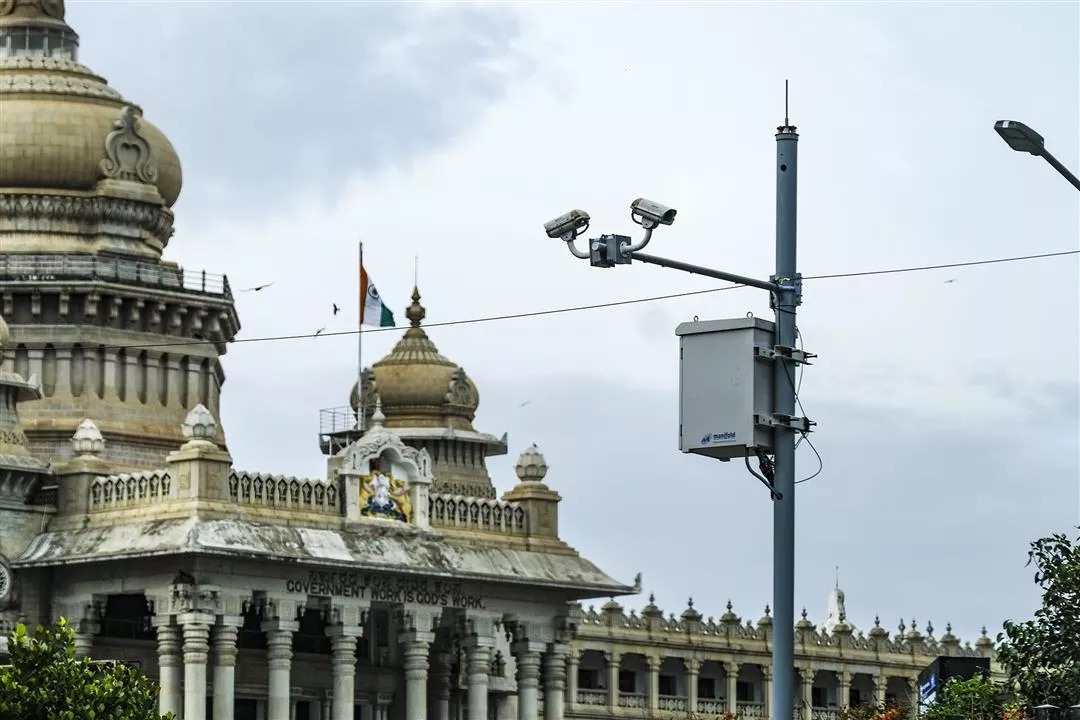
Computer systems for road traffic monitoring need to take account of environmental factors including India’s air quality and the properties of ambient light in outdoor locations.
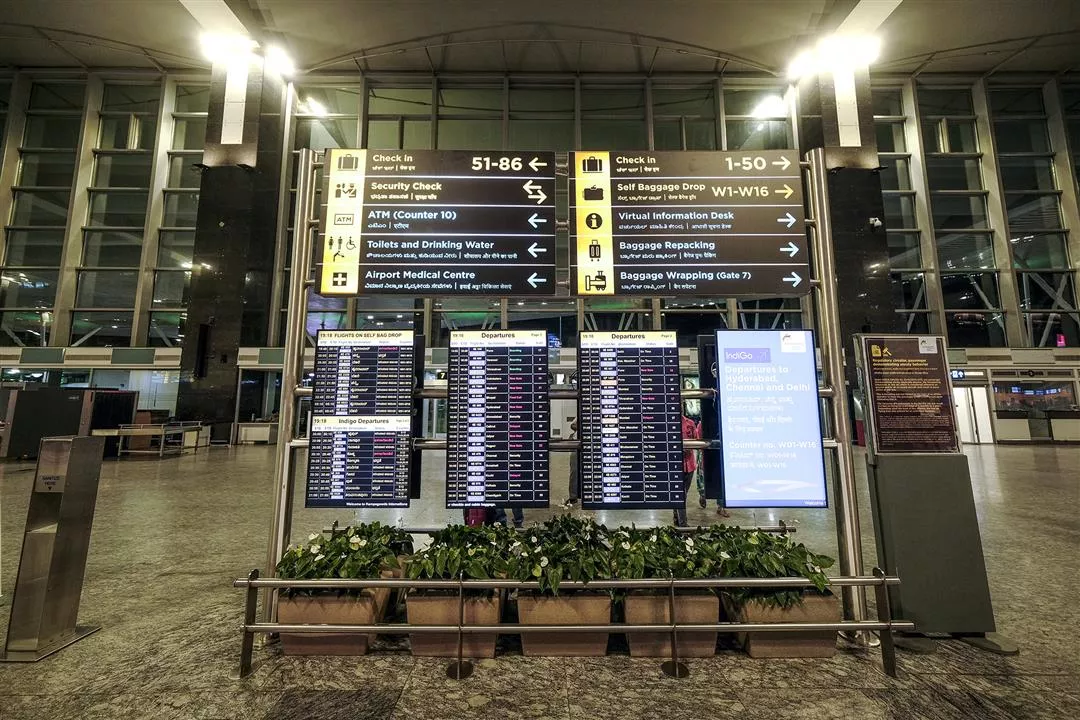
Highways, railways, and airports across India all have digital displays and embedded backend systems tailored to each venue’s needs.
Localization and sustainability
Another critical competitive advantage of Advantech India is rooted in the company’s localization strategy. Besides working to develop the market, the firm also trains local human resources. Advantech engages in industry‡academia cooperation with 35 universities in India, offering practical lectures on subjects such as computation and signal transmission, while the company also provides internships. The goal is to build up an adequate talent pool. At present, 40% of Advantech India’s employees come through these programs.
Rakesh Sharma opines that education is extremely important, and that the biggest challenge to the firm’s plan to develop bases in various Indian states is the talent pool.
Advantech has built an excellent brand reputation in India. Given the opportunities offered by the country’s smart cities program, over the last seven years its Indian subsidiary has had average annual growth of 19.5%. During the Covid-19 pandemic from 2020 to 2023, by responding to demand for digitization it enjoyed explosive growth of 32.3% per year. Mark Yang says confidently: “India will be a market with continual growth, because India is still evolving.”
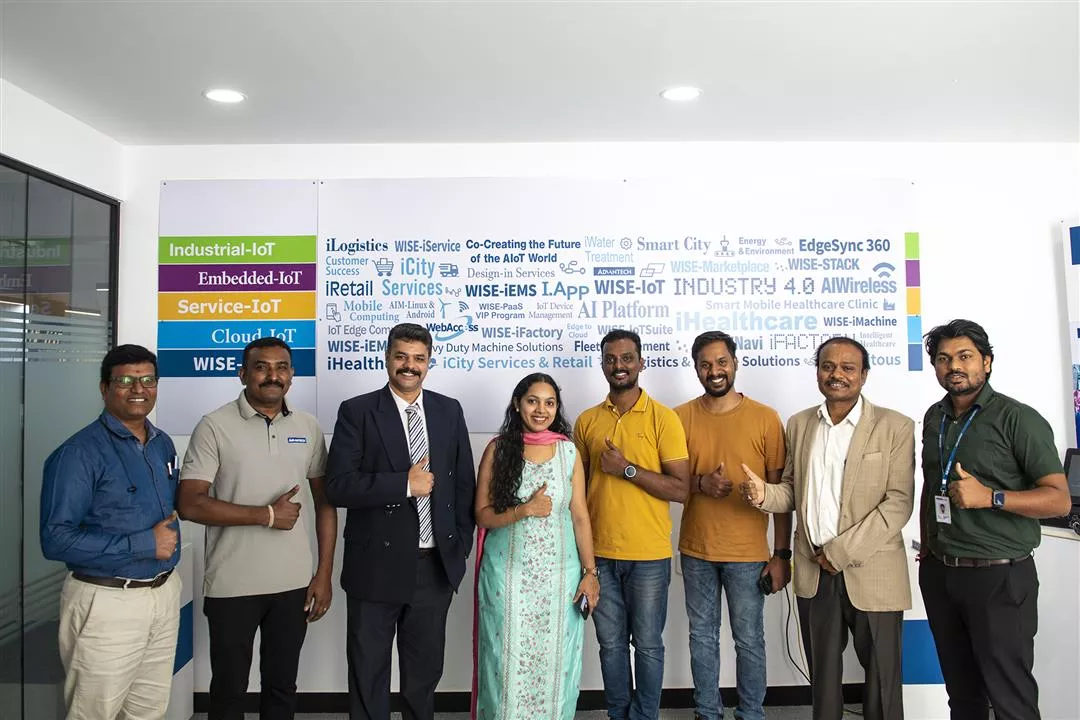
Advantech emphasizes localization and customization. Its highly capable staff have enabled the firm to grab a powerful stake in India’s “smart cities” market.
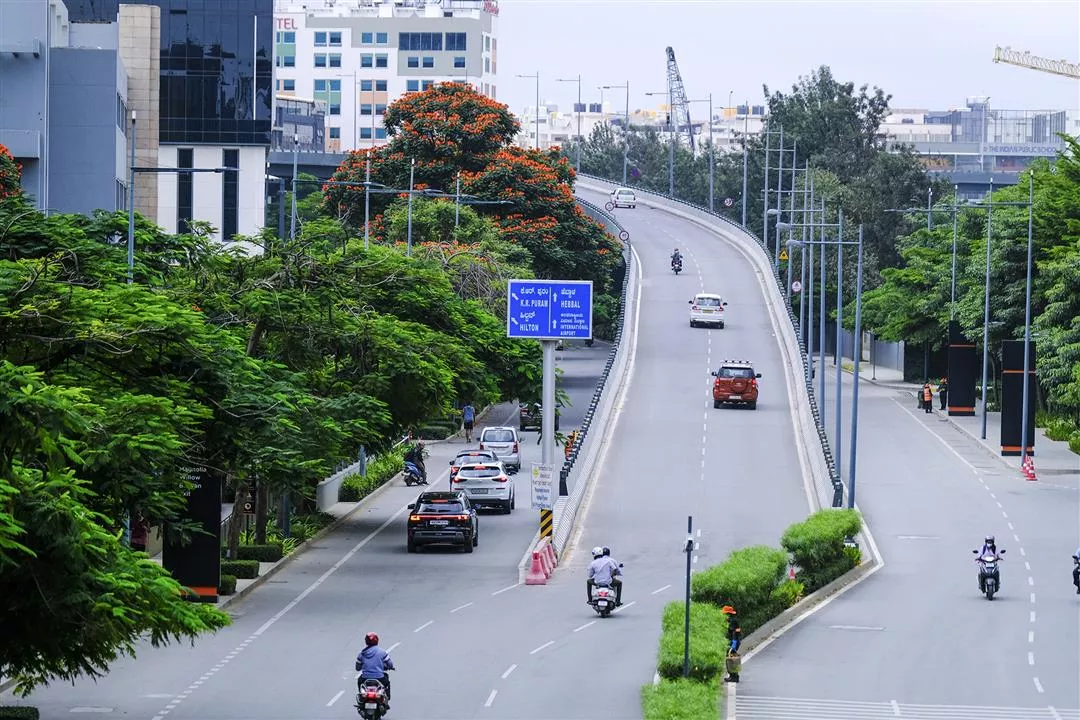
India’s push to comprehensively improve its basic infrastructure through its Smart Cities Mission is creating boundless commercial opportunities.
Industrial personal computers
Industrial personal computers (IPCs) are computer systems designed for industrial applications, in roles that include control and monitoring for processes such as automated manufacturing, transportation, and environmental monitoring. IPCs ensure the stability, efficiency, and smart operation of industrial processes.






@List.jpg?w=522&h=410&mode=crop&format=webp&quality=80)
@List.jpg?w=522&h=410&mode=crop&format=webp&quality=80)